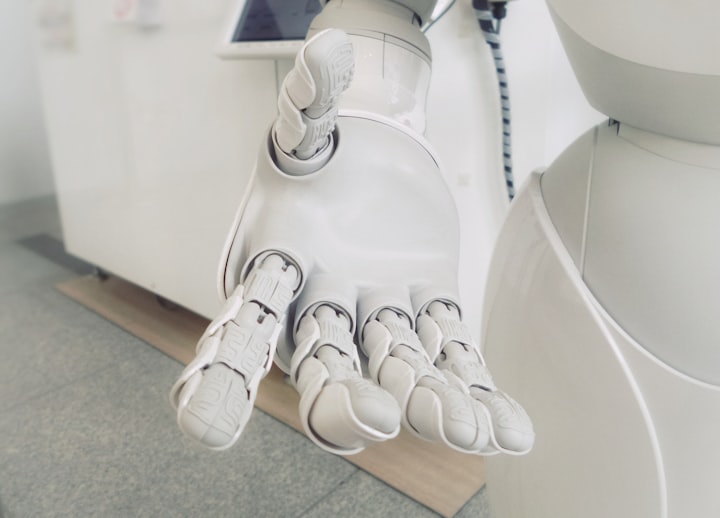"Robot, Pass The Scalpel"
How robotics is transforming surgery.

This story was previously published on Dr. James Goydos' Medium.
Humankind is great at innovation. Throughout history, we can see several examples of this. From the discovery of fire transforming the ways in which we survive, to the invention of the wheel forever altering transportation, we are constantly seeking out new ways to improve our systems. While innovation has some of its earliest roots in things like rudimentary tool production to the creation of early forms of transportation, the legacy has continued to the present day.
Technological innovation has continued, and its benefits can be seen throughout a myriad of industries, and healthcare is no exception. While we have kept some of the world’s earliest inventions, such as the wheels on a surgical tray, we have introduced many more innovations into the field that our early ancestors could not have fathomed.
If we take surgery as an example, one can see a number of developments that have complemented the practice over time. The fundamentals of performing surgery have not changed, but the ways in which we approach the practice have evolved with advances in technology. While the surgical tray is not going away any time soon, technological innovations have changed the way we understand and perform surgery. Robotics has crept its way into healthcare and is currently being applied in numerous hospitals around the world. The adoption of robotic surgery is increasing, with too, accounting for 15% of all surgeries.
While the thought of robotic-assisted surgery may be unusual for some, the introduction of robotic arms into the operating room has been a welcome one for many surgeons. These fine-tuned tools have helped to improve many aspects of surgical procedures, including less incidence of surgical site infections, reduction in blood loss, and faster recovery. Of course, as with many technical innovations, there are fears that robotic surgery is a move to alter the workforce in healthcare.
But it is important to note that robotic arms and robotic-assisted surgery are not here to replace surgeons, but rather enhance the procedures wherein they are utilized. Of course, the healthcare industry does not have a crystal ball to prophesize potential changes in the labor market, but given the existing limitations to technology, and the unique expertise and intelligence that human surgeons offer the task at hand, it is safe to say that surgeons will not be replaced any time soon.
As with many technological advancements, we will continue to see innovations which will transform the ways in which we understand industry. For many, there is an underlying fear that robotics and other innovations such as artificial intelligence (AI) will replace many positions in the workforce. However, it is imortant to note that, as with most advances in technology, improvements are merely meant to enhance, and make more efficient, existing industry.
If we consider surgery, robotic assistance will provide a complement to the surgeons and additional medical professionals. Studies to date illustrate improved health outcomes with the addendum of assisted surgery, and we will likely continue to see similar outcomes with the incorpoation of further tech in medicine.
Advancements may create new positions within the industry, including those which help to create and manage the software and hardware involved in treating patients. Time will tell the degree to which automation will impact the medical field, but it is unlikely that technology will completely replace humans. Rather, it is more likely that both man and machine will continue to work in tandem as we have seen throughout history.
More articles like this from Dr. James Goydos:
About James Goydos, M.D.
Dr. James Goydos is an expert in melanoma research and specialist in surgical oncology with an M.D. from Rutgers University. With over 20 years of experience as a Professor, Surgeon, and Clinical Trial Lead, he is a leading expert in his field.
Subscribe to James Goydos’ newsletter. Follow me on Newsbreak, Thrive Global, Good Men Project, Loop, Medium, Instagram, Facebook, YouTube, Medika Life, Doximity, Github, Kaggle, Vocal, LinkedIn, Pinterest, and Twitter!
About the Creator
James Goydos, MD
James Goydos MD - Doctor, surgeon & expert on skin cancer. M.D. from Rutgers. Experience as a Professor of Surgery, Surgical Oncologist, & clinical trial leader. Writing on cancer, detction with camera / computer vision and healthcare.






Comments
There are no comments for this story
Be the first to respond and start the conversation.